Afro-Cuban Identity in Postrevolutionary Novel and Film
Afro-Cuban Identity in Postrevolutionary Novel and Film
Inclusion, Loss, and Cultural Resistance
Andrea Easley Morris
Published by Bucknell University Press
Co-published with The Rowman & Littlefield Publishing Group, Inc.
4501 Forbes Boulevard, Suite 200, Lanham, Maryland 20706
http://www.rowmanlittlefield.com
Estover Road, Plymouth PL6 7PY, United Kingdom
Copyright 2012 by Andrea Easley Morris
All rights reserved. No part of this book may be reproduced in any form or by any electronic or mechanical means, including information storage and retrieval systems, without written permission from the publisher, except by a reviewer who may quote passages in a review.
British Library Cataloguing in Publication Information Available
Library of Congress Cataloging-in-Publication Data
Morris, Andrea E.
Afro-Cuban identity in postrevolutionary novel and film : inclusion, loss, and cultural resistance / Andrea Easley Morris.
p. cm.
Includes bibliographical references and index.
ISBN 978-1-61148-422-9 (cloth : alk. paper) ISBN 978-1-61148-423-6 (electronic)
1. Cuban literature20th centuryHistory and criticism. 2. Blacks in literature. 3. Race in literature. 4. Identity in literature. 5. Motion picturesCubaHistory20th century. 6. Blacks in motion pictures. 7. Race in motion pictures. 8. BlacksRace identityCubaHistory20th century. I. Title.
PQ7372.M67 2012
863'.640997291dc23
2011039969

The paper used in this publication meets the minimum requirements of American National Standard for Information Sciences Permanence of Paper for Printed Library Materials, ANSI/NISO Z39.48-1992.
Printed in the United States of America
To Patrick, Selah, and Maceo, for reminding me what I am capable of.
Contents
Acknowledgments
Introduction: Creative Difference(s)
| 1 | Contradictory Approaches to Race, from Independence to Revolution |
Part I: Representing Difference in Colonial and Republican Settings
| 2 | Slave Rebellion and Cultural Resistance |
| 3 | Performing the Mulata Rumbera |
| 4 | Fragmented Cubanness by Way of Dtour |
Part II: Postrevolutionary Identities in Conflict
| 5 | Black Masculinity in Crisis |
| 6 | Race, Place, and Marginality |
Conclusion
Epilogue: The 1980s and Beyond
Bibliography
Index
Acknowledgments
I am deeply grateful for Elzbieta Sklodowskas guidance during the early stages of this project, for advice throughout the process, as well as for courses in Latin American testimonio and Cuban literature that continue to influence my scholarly concerns. An ethnomusicology course with Ingrid Monson was also an invaluable resource that contributed to the volume. I express my sincere thanks to Cuban poets Caridad Atencio and Rito Ramn Aroche, friends who have included me in literary events on multiple visits to Cuba and have always been available to provide insight on my project. Likewise, conversations with Leonardo Guevara Navarro, a Cuban poet whose paths brought him to Baton Rouge, were essential in remaining informed about developments in race studies within Cuba and contemporary artists that address racial concerns. I am also indebted to Cuban writers, scholars, and filmmakers who took the time to meet with me as I formulated the basis for my study: Luisa Campuzano, Sergio Chaple, Gloria Rolando, Victor Fowler, Alberto Guerra, and Nivaria Tejera.
I extend my thanks to Washington University and Louisiana State University for the support I received during different stages of the project. Conferences organized by the Afro-Romance Institute for Languages and Literatures of the African Diaspora of the University of Missouri have been extremely helpful in providing feedback on some of the material for my book. My sincere thanks goes to Mara Hernndez Ojeda for her encouraging response to the chapter on Nivaria Tejera, as well as for connecting me with Nivaria, a gracious and overlooked jewel among Cuban writers. I am also grateful to Tom DiNapoli for his careful proofreading and suggestions on how to revise the manuscript. Earlier versions of the chapters on Rachels Song and Adire y el tiempo roto originally appeared in Afro-Hispanic Review and Caribe: Revista de Cultura y Literatura , respectively. Permission to reprint this material is greatly appreciated. In my analysis I quote extensively from several novels, one translated into English, the others in the original Spanish. The authors and publishers of the novels have graciously allowed me to reprint quotes, which I hope brings greater attention to these inspired works of literature. Permission to reprint material from Los guerrilleros negros (La Habana: UNEAC, 1976) later published as Capitn de cimarrones , was granted by the author, Csar Leante. Permission to reprint various excerpts from Miguel Barnets Rachels Song (trans. W. Nick Hill; Willimantic: Curbstone Press, 1991) was granted by Curbstone Books/Northwestern University Press. Author Nivaria Tejera granted permission to reprint quotes from Sonmbulo del sol (Barcelona: Editorial Seix Barral, 1972). Permission to reprint excerpts from Manuel Granadoss Adire y el tiempo roto (La Habana: Casa de las Amricas, 1968) was granted by the Fondo Editorial Casa de las Amricas.
Introduction: Creative Difference(s)
In the Hispanic Caribbean, overall a region reluctant to embrace its African heritage, Cuba stands out for intellectual currents throughout its history that have recognized what, according to Alistair Hennessey, binds the Caribbean together: the resilience, exuberance and creativity of its people of African descent (2000, 253). Those who would have preferred a whiter Cuba have been consistently challenged by the Afro-Cuban populations creative resistance to the dominant culture. Indeed, African-derived cultural expression should not be viewed as merely an accompaniment to the oppression experienced by enslaved Africans and their descendants, but as a mode through which resistance to the dominant culture has been enacted. This spirit of resistance central to Afro-Cuban identity has been historically interwoven with Cubas struggle against the imposition of colonial dominance and foreign control, and has contributed immeasurably to the creation of an independent nation.
Undoubtedly, the struggle against racial injustice in Cuba has been fought in the cultural realm in ways that are not always viewed as political. Here, I refer to the Cuban literary tradition in the sense of high culture as well as popular forms of expression and social networking and organizing that have emerged as transculturated African traditions, among them religious and secular narrative, music, and movement; the cabildos de nacin , or mutual aid societies; and the more overtly political practice of cimarronaje and the creation of runaway slave settlements. It is worthwhile to consider these practices alongside literary works that have portrayed the experience of African slaves and their descendants in an effort to critique and effect change in Cuban society.

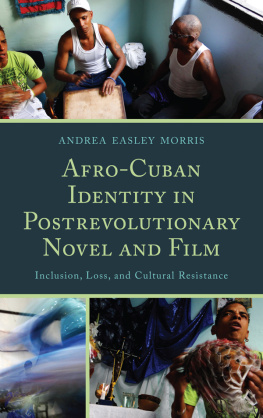
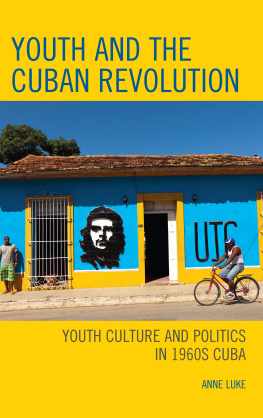
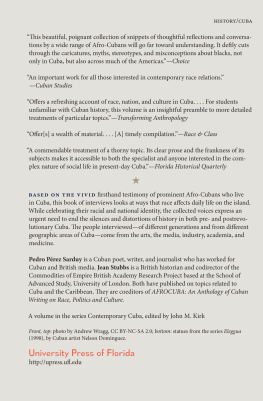


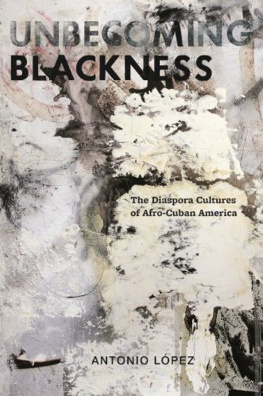
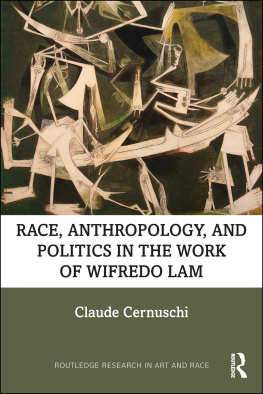
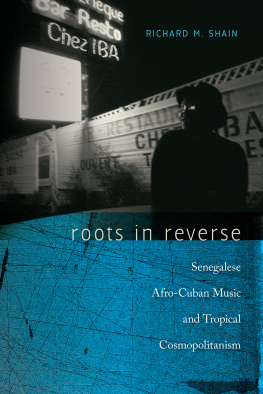
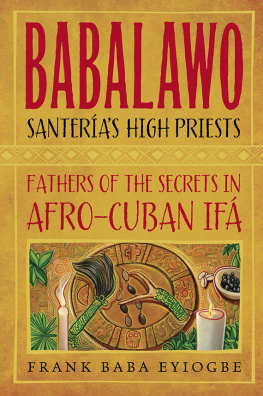
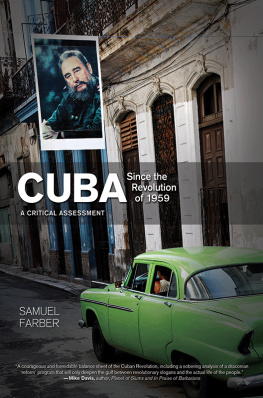
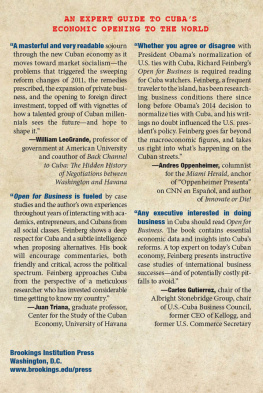
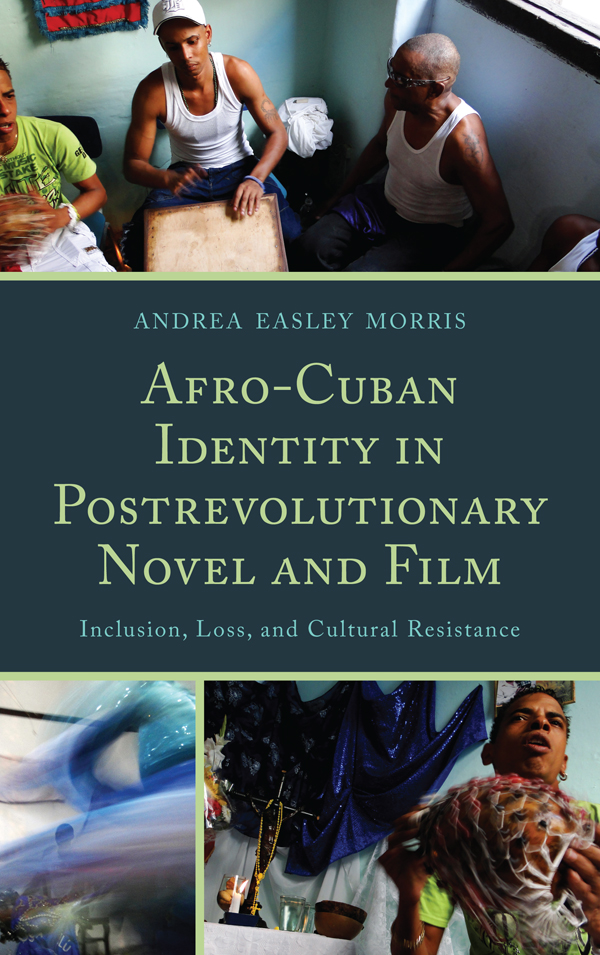
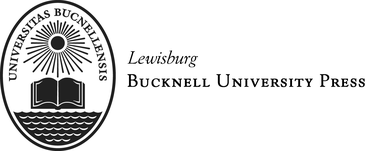
 The paper used in this publication meets the minimum requirements of American National Standard for Information Sciences Permanence of Paper for Printed Library Materials, ANSI/NISO Z39.48-1992.
The paper used in this publication meets the minimum requirements of American National Standard for Information Sciences Permanence of Paper for Printed Library Materials, ANSI/NISO Z39.48-1992.